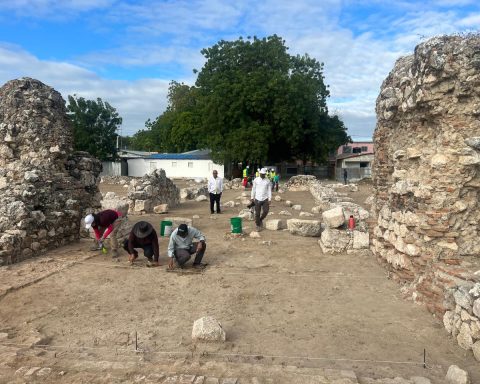The Ministry of Social Development (Mides) will have as of January 1, $415 million supplements that will go directly to the National Food Institute (INDA). There will be $155 million available for next year and $260 million in 2024.
This provision, which the Broad Front voted reluctantly in Parliament under the suspicion of an electoral intention, it will be used for the most part for the great bet of the ministry: strengthen the National System of Kitchens to ensure that in the short term they supplant the popular pots.
This is how it is proposed in the scheme designed by the portfolio to which he agreed The Observer and that will have its starting point on April 1. It will be after the end of the current agreement -the fifth in succession- signed with the organization Uruguay Adelante for the distribution of supplies to support the pots and that will no longer be renewed.
Beyond the differences that the ministry has been maintaining in recent times with some entities such as the Coordinator of Popular Pots, at the official level it is understood that it is necessary to put aside a “temporary” support model represented by a tool that, moreover, does not constitutes a public policy and that does not allow attending to a priority set by the portfolio.
In this way, it is intended to leave the situation behind and focus on solutions to long-standing “structural” problems in access to food that, according to the Mides, did not originate in the health emergency. The bet is that a greater territorial presence of the kitchens allows them to become the access route for people who require help to feed themselves.
In the last two years, Mides contributed $332 million to provide food to support popular pots.
Part of the supplementary resources available from next year will be used to begin to correct a recognized weakness in the very system that is intended to be strengthened.
The INDA today maintains 57 dining rooms distributed in all the departments. In Montevideo, which concentrates almost half of the country’s population, there are only four. The additional problem is that out of 4,000 registered users only 1,620 are attending.
As pointed out to The Observer the director of INDA, Ignacio Elgue, this is a consequence of the excessive centralization of the premises. One is located in La Comercial and the other in La Teja. The other two are in Peñarol and La Unión. Elgue marked that this represents a great difficulty for the vulnerable population that resides in peripheral neighborhoods and cannot afford to pay two bus tickets to access a plate of food.
The situation had been raised in the middle of last month when the ministry went to Parliament to present on Accountability. There Elgue noticed that in the areas where the system showed more weakness was where the pots had a greater presence.
Elgue pointed out that the origin of this weakness was explained by a decision of the previous government. According to what he said, in 2016 the government of the time decided to close four dining rooms in Montevideo. Elgue assured that he had not found any report at the institute to substantiate this measure. He also recalled that it was in a year in which, according to the United Nations Food Organization (FAO), there was a “peak” of food insecurity in Uruguay.
Although it is considered a valuable input, this study uses a methodology that the ministry considers only allows for a partial overview of the situation. Mides expects to receive the results of the Food Security Module at the National Level before the end of the month. Carried out through an agreement with the National Institute of Statistics (INE), it is the first of its kind in the history of Uruguay and will include a questionnaire that, within the Continuous Household Survey, uses the international scale FIES (Food Insecurity Experience Scale).
According to Mides, this will allow in-depth knowledge of the food situation in the country and obtain more complete information when making decisions.
new lines
For now, the INDA manages in the short term the reopening of one of the dining rooms closed during the past government in the current INDA headquarters in Ciudad Vieja. In addition, another one will be opened in the 5th Engineers Battalion, on Aparicio Saravia Boulevard.
These premises will be complemented with new mechanisms that Mides intends to implement and that are part of the plan that will take full effect in April: “mobile” distribution points in the municipalities that present a greater weakness in food assistance.
The economic reinforcement arrives, according to the official version, to address “structural problems” that “have been going on for years,” despite the fact that the ministry insists that, in general terms, the “demand” in the food system has dropped. In the dining rooms, official data indicates that in the first half of this year there were 8,000 fewer users per day than in the same period in 2021.
The scheme to be deployed next year will be one of the three planned stages of a comprehensive plan aimed at the beneficiaries of the National Dining System. Phases two and three will consist of trying to give “skills” to these people, creating a “circular economy” with some jobs that can be provided by the institute and that go through family farming and the recovery of waste and food applied through of Redalco Uruguay.

















